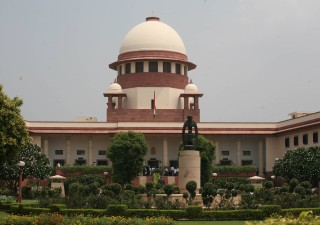Indian Government Taking Steps to Protect Yoga Postures
06 January 2016

The Indian government is taking steps to protect the country’s traditional knowledge, including yoga. Yoga is popular in many Asian and Western countries today, but the ancient Hindu philosophical, spiritual and physical practice, which was developed in the northern parts of India 5,000 years ago, is not fully protected as traditional knowledge, particularly on the cultural side.
Commercial disputes regarding yoga, however, are not novel. One of the highest-profile IP cases involves Bikram Choudhury, an Indian-born and US-based yoga instructor. In 2011, Choudhury, a former All-India National Yoga Champion and the owner of Bikram’s Yoga College of India in Los Angeles, sued Yoga to the People, a competing yoga studio founded by a former student of Bikram’s and with a location near one of the Bikram Yoga studios in New York. As a result of that lawsuit, the United States Copyright Office issued a clarification that asanas (yoga postures) could not be copyrighted in the way claimed by Bikram, and that Yoga to the People and others could continue to freely teach these exercises.
Choudhury later filed a patent application for “hot yoga,” which takes place in hot and humid rooms (typically around 40°), but the attempt was blocked by the Indian government.
According to Joanna Thurston, a partner and patent attorney at UK-based IP firm Withers & Rogers in Sheffield, since 2009, a council that sits within India’s Ministry of Science and Technology has been attempting to document centuries-old yoga techniques, which have been classified as ‘traditional knowledge.’
“Our experts have identified over 1,500 yoga techniques from the literature available from our ancient texts and what is available now,” Archana Sharma, head of India’s Traditional Knowledge Digital Library (TKDL), told The Indian Express. “Nearly 250 asanas have been videographed already. It should take five or six months to complete the process, after which it can be the part of the database. Once that happens, any attempt to claim patent on the Indian yoga techniques practiced since ancient time can be thwarted.”
The TKDL is an Indian digital repository of the traditional knowledge, especially about medicinal plants and formulations used in Indian systems of medicine, that was set up in 2001. The TKDL maintains a database for traditional medicines and includes Ayurveda, Unani, Siddha and Homeopathy. The database is shared with the European Patent Office, United States Patent and Trademark Office, Canadian Intellectual Property Office, German Patent Office, IP Australia, Japanese Patent Office and Chile Patent Office.
Thurston says patent protection for yoga is difficult, since most patent applications are required to prove that the invention is novel and inventive.
She says that patents should be granted for new and inventive ideas only, and that as yoga practice does not generally fulfill these requirements, it should be open to all. “It was always difficult to protect yoga sequences, for the reasons described above. However, the TDKL has done a very good job in providing evidence that these sequences are known, initially through images, and now through videos. This evidence, coupled with their keen watchful eye on the patent applications that are filed, so that they can take steps to prevent grant of any patent applications in this area, is proving very effective at preventing patent grant in this field,” she says.
In order to prove that a sequence of yoga is inventive, Thurston says, the applicant would have to show that they create some particular health benefits which would not be the same if the postures were carried out in different orders.
According to Archana Shanker, senior partner at Anand and Anand in Noida, under the provisions of the Indian Patents Act, traditional knowledge does not constitute a patentable subject matter.
Because the Indian government has allowed access to the TKDL data base to foreign patent offices so as to prevent patenting of yoga postures, yoga postures are not patentable. This effort is an attempt of the Indian Government to prevent yoga piracy.
“In India, in view of the provisions of Section 3(p), an invention which, in effect, is traditional knowledge or which is an aggregation or duplication of known properties of traditionally known component or components, constitutes unpatentable subject matter,” Shanker says.






